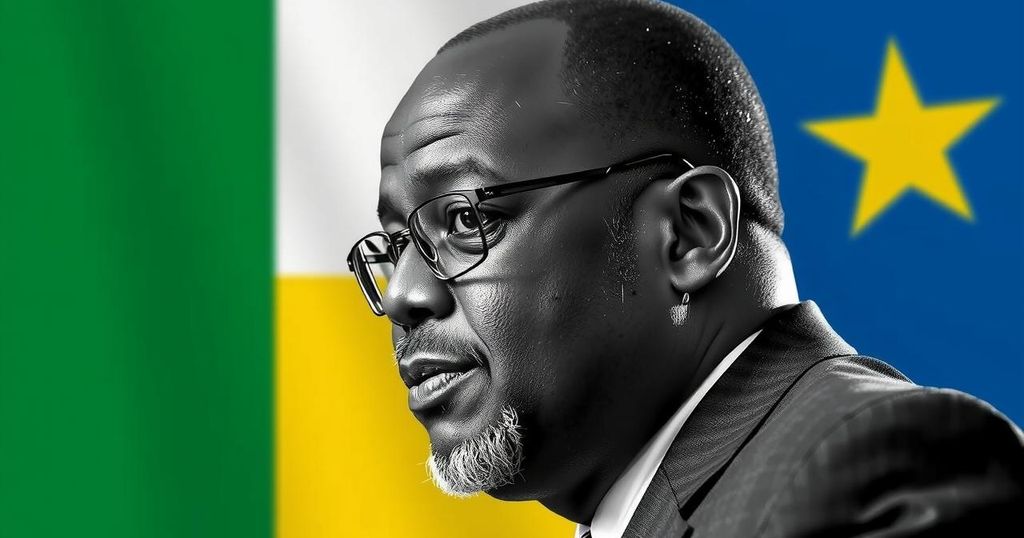Congo Considers Constitutional Review Amid Power Tenure Concerns

The Democratic Republic of Congo is considering a constitutional review under President Félix Tshisekedi, who argues for a constitution aligned with Congolese values. This proposal has triggered concerns among opposition leaders, who fear potential efforts to extend his presidential term. The historical context of earlier constitutional reforms highlights the contentious nature of such political maneuvers. Opposition figures, including Moïse Katumbi and Martin Fayulu, have declared their intention to thwart any changes, underscoring the deep divisions within Congolese politics.
The Democratic Republic of Congo is presently contemplating a constitutional review, which has raised concerns among opposition factions that this move may serve as a mechanism for President Félix Tshisekedi to prolong his time in office. President Tshisekedi has publicly stated the necessity for a constitution that resonates with Congolese values, indicating his plan to establish a commission for drafting a revised constitution that reflects the nation’s reality. “I will appoint a national commission next year, which will include people from all disciplines, but who will be Congolese, to reflect and give us a constitution that will be adapted to our realities,” he asserted during a visit to Kisangani. He criticized the existing constitution, originally enacted in 2006, as being inadequate and foreign in nature, lacking representation of Congolese nationalism. Historically, the 2006 constitution was ushered in after a referendum aimed at consolidating democracy in the face of prolonged political violence; however, any suggestions for reform have typically met with vehement opposition. The UDPS party, under President Tshisekedi’s leadership, has now initiated a campaign promoting constitutional reform, with party leaders, such as Augustin Kabuya, proffering that the current document has limitations that necessitate adaptation to modern political dynamics. Although there have been insinuations regarding the potential alteration of presidential term limits, the UDPS has thus far refrained from explicitly proposing changes regarding the tenure of elected officials. President Tshisekedi maintains that alterations to term limits ought to be determined by the electorate, not himself, asserting, “To change that, only the people can decide, not the president.” Nevertheless, some within the UDPS interpret the ongoing discourse as a foundation for manipulating the presidential term framework, with arguments suggesting that Tsisekedi has only fully served three of his five-year term due to the time taken to establish a new government. Opposition leaders, who previously and vehemently opposed President Kabila’s attempts to modify the constitution, appear united in their resistance to any proposed changes under President Tshisekedi, with figures like Moïse Katumbi affirmatively stating, “This law will not be changed.” Another opposition stalwart, Martin Fayulu, expressed his intent to actively obstruct any efforts aimed at revising the constitution, challenging the notion that it impedes government efficacy. The Catholic Church has also weighed in, cautioning against such constitutional alterations, with Monsignor Donatien Nshole commenting that modifications could lead to national destabilization amidst existing turmoil within the country. As voices of dissent solidify against potential constitutional changes, it remains to be seen how the ruling party’s factions will respond to Tshisekedi’s proposals.
The Democratic Republic of Congo’s constitutional debate arises amid past tensions surrounding presidential term limits and governance structures. The current constitution, established in 2006, was designed to curtail cycles of violence and promote democratic elections following decades of conflict. Historical opposition to constitutional reforms, particularly during Joseph Kabila’s presidency, has led to widespread skepticism regarding motives behind revising the constitution. The present context reflects a reversal in political roles as the Tshisekedi administration now entertains reform proposals that opposition groups view as tactical attempts to retain power.
In conclusion, the call for a constitutional review in the Democratic Republic of Congo has sparked a heated political discourse. President Félix Tshisekedi advocates for amendments to reflect Congolese realities, but opponents express concerns that these changes could be self-serving, aimed at prolonging his administration. As dissent grows and various factions voice their opposition, the future of the constitution and its amendments remain uncertain, underscoring the delicate balance of power and governance in the country.
Original Source: www.theeastafrican.co.ke







